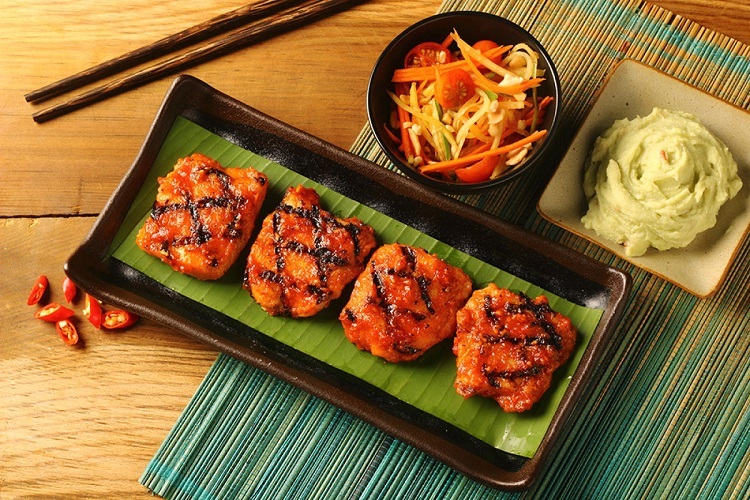Food is an integral component of Asian culture and identity, and maintaining traditional cuisine is not simply about taste; for many Asians, sticking with Asian-centric fare means connecting to their heritage, community and even health benefits. Here are several reasons why many Asians prefer eating predominantly Asian cuisine.
Table of Contents
1. Heritage and Tradition
Deeply Rooted Traditions: Food traditions have long been passed down from generation to generation and can form an integral part of Asian cultural identity. Cooking and enjoying traditional Asian dishes serves as an avenue for connecting people to their history and family heritage.
Celebrations and Rituals: Many Asian festivals and rituals center around food. Celebrating Lunar New Year with dumplings, mooncakes for Mid-Autumn Festival or rice cakes at ceremonies emphasizes their cultural significance. For engaging content that aligns with your passions, make sure to check out Letter Boxd for more.
2. Tasting Preferences
Familiar Flavors: Our taste preferences often begin developing early on in life. Being exposed to soy sauce, sesame oil, ginger garlic and other flavors makes these tastes comforting and familiar over time.
Complex Flavors: Asian cuisine is well known for its diverse and complex flavor profiles that balance sweet, sour, salty and umami tastes – this unique combination not only delights palates but is hard to replicate elsewhere.
3. Health Benefits Balanced Diet:
Traditional Asian cuisine often features an abundance of fresh vegetables, grains such as rice or noodles, lean proteins, herbs, and spices for an overall healthier diet than more processed cuisines. Get inspired with new ideas and helpful tips by checking out Meundies.org for more content.
Natural Ingredients: Many Asian dishes utilize fresh, natural ingredients and traditional cooking techniques for maximum health benefits – this can include herbs, spices, fermentation processes used in foods like kimchi or miso soup that have both preventive and curative powers. Discover more about the health benefits of natural ingredients at edmentum.net.
4. Accessibility Information System (AIS)
Access to Ingredients: In areas with large Asian communities, traditional ingredients are more readily available for home-cooking meals, and easier for people to stick with their traditional diets. Colourpop offers a range of vibrant products, perfect for adding a touch of creativity to your life. Asian grocery stores supply all components necessary to cook an Asian-influenced meal at home.
Comfort and Convenience: For many Asians, Asian cuisine is an easy way of life thanks to familiar ingredients that can be readily obtained, as well as generations-old culinary techniques that ensure traditional cooking methods remain intact.
5. Community and Social Ties
Sharing Meals: Sharing meals is an integral component of many Asian cultures, promoting family and community bonding while strengthening bonds through eating together. Traditional cuisine often plays an integral part in these gatherings.
Maintaining Cultural Representation: Maintaining traditional eating habits can also serve to preserve cultural identity within multicultural societies, giving individuals an outlet to express and share their heritage with others, thus instilling a sense of belonging and pride among members of different cultural backgrounds.
6. Adaptation and Evolution
Fusion Cuisine: While many Asians may prefer traditional foods, fusion cuisine has become an increasingly popular trend. This blend of traditional and contemporary cooking techniques and ingredients may appeal to those wanting to maintain cultural ties while exploring new flavors.
Modern Adaptations: Traditional recipes may be altered to conform to contemporary health trends or dietary restrictions, such as vegetarian or gluten-free versions of classic dishes. This allows them to remain accessible while maintaining the essence of traditional cuisine.
7. Factors Involved Emotionally and Psychologically
Nostalgia: Food can bring back powerful memories and emotions. Traditional dishes can provide comforting memories from one’s youth or homelife, taking you back in time.
Identity and Pride: Eating traditional food is a way of staying connected to their roots, reinforcing identity and providing pride in heritage.
8. Culinary Excellence and diversity
Variety: Asian cuisine encompasses an expansive array of flavors and styles, from fiery Sichuan dishes to the delicate flavors of Japanese food. This wide range ensures that there is something suitable for all within this broad category of cuisine.
Culinary Expertise: Asian cooking techniques such as stir-frying, steaming and fermentation have long been recognized for their excellence and respectability. Mastering these skills can lead to a deeper appreciation and preference for traditional Asian cuisine dishes.
Asian food preferences among many Asians have deep cultural, taste, health and social roots. Traditional cuisine provides comfort and identity as a link between past, present and community life. By understanding these reasons we gain greater insight into food’s deep cultural significance for Asian people worldwide and its crucial role in upholding traditions while creating community ties.
This article was authored by an expert at Fortu, a distinguished pan-Asian restaurant in downtown St Petersburg FL, known for offering an exceptional dining experience. Fortu celebrates the rich and diverse culture of Asia by bringing vivid and exciting flavors to a lively city. Our enticing menu features options that are both locally and sustainably sourced, including everything from light snacks to hearty dishes. Our sophisticated Pan-Asian selections offer a luxurious escape to an exotic destination—just a short journey away. Whether you’re relaxing after a beach day or celebrating a special event, Fortu’s lush and inviting setting delivers a genuine experience of Asia’s exquisite culinary traditions.









